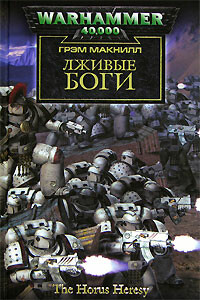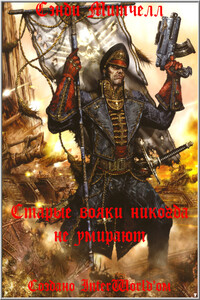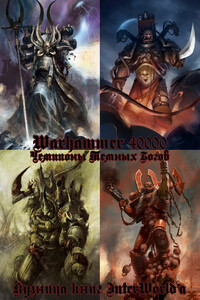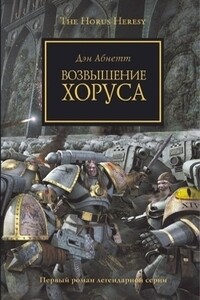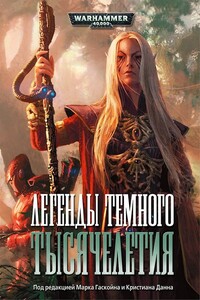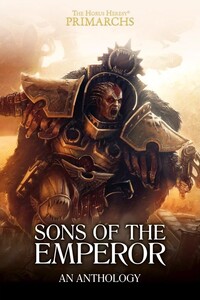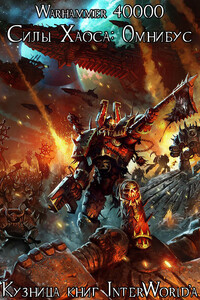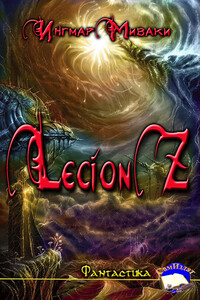The burners fumed with camphor and septrewood, rose-ash and parvum, the sacred incense of the Saviour Emperor, thought to smell exactly like the incorruptible sanctity of His Eternal Form.
Vangorich couldn’t attest to this. Given his office as a Grand Master, he might have requested, and even been granted, the chance to show observance at the foot of the Golden Throne. He had never bothered. The dead did not interest him, not even the divine dead. What interested him — obsessed him — were the mechanisms by which things became dead, and the opportunities those deaths afforded the living.
He had entered the Inner Palace that morning through West Watch, and then followed the hallway walks behind the High Gardens and Daylight Wall before pausing in the chapel ordinary behind the cloister wall to make a small devotion at the basin font.
Vangorich was not a pious man. He was a man of faith, but it was not a spiritual faith. He made his devotion because he knew — or at least could be fairly certain — that agents from a dozen or more ministries and factions were watching him at all hours of the day and night. It was easier to make sure he was seen to be doing what he was supposed to do, than it was to waste manpower eradicating those spies on a daily basis.
Let his rivals do the hard work. It was no great effort to act a part.
Drakan Vangorich had been doing it all his life.
So he did what was expected of him. As a Grand Master — albeit of an Officio that had once been powerful and was now regarded as an atavistic throwback to a more brutal age — he was expected to attend all meetings, formal and discretionary. He was supposed to show humility and dignity. He was supposed not to express any cruel or bloodthirsty appetites, the sort of appetites his rivals assumed that a Grand Master of the Officio Assassinorum must harbour. He was supposed to show respect to the Creed.
All Senatorum members took a blessing or expressed some devotion before taking their seats at meetings, so that the will of the God-Emperor might guide their thoughts and wisdom. Some, like the odious Lansung, made a great show of doing so, in full dress uniform, usually in the chapel-vault of one of his battlefleet vessels in orbit. Mesring was the same, leading a train of gowned, gold-helmed savant-priests into the rotunda church below Hemispheric Wall. Pompous idiots!
Vangorich, dressed in simple, ascetic black, opted for a less showy effect. The chapel ordinary was used by Palace servants and householders for their daily observances. It was not a public place, just a very plain cell with frugal appointments. Vangorich was aware that using it made him look dutiful, restrained, and very humble. It made him look more admirably spiritual than the lords who made their observances for show. It spoke of simplicity and a lack of arrogance.
It made him look trustworthy and noble. It made him look good. He liked his rivals’ spies to see that. He knew it irked them beyond measure to hear that he had stopped for a few minutes in a private, unostentatious servants’ chapel to make a discreet act of faith. How it bothered them that he was so unimpeachably wholesome.
The truth was, he probably thought more about how he looked at all times, and what his image said about him, than the likes of Mesring and Lansung. Their activities were conducted publicly, to win popular support; Vangorich’s were conducted simply for the benefit of the ever-circling spies. He performed for his rivals, playing the part he wanted them to see.
How would they see him now, coming to the meeting? As a man of medium height and medium build, dressed in black, with black hair oiled back like a clerk’s across his narrow skull. His skin was pale from the constant twilight of life in the Palace, and he had precious little in the way of distinguishing features, except for his dark, wide-set eyes and the duelling scar that canyoned the left part of his mouth and chin.
Vangorich never spoke of the duel, except to say that it had happened when he was a youth, before he took office, and he regretted it in as much as the matter should not have been resolved face-to-face with rapiers, but rather with him placed behind his adversary, dagger in hand, and his adversary unaware of his presence.
